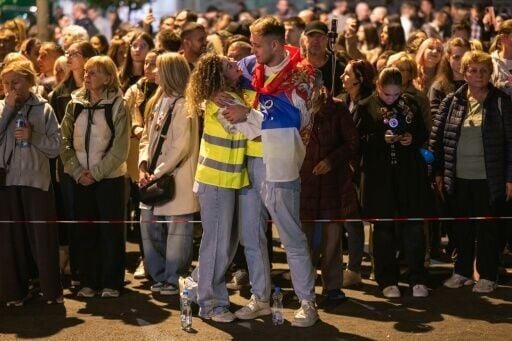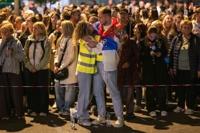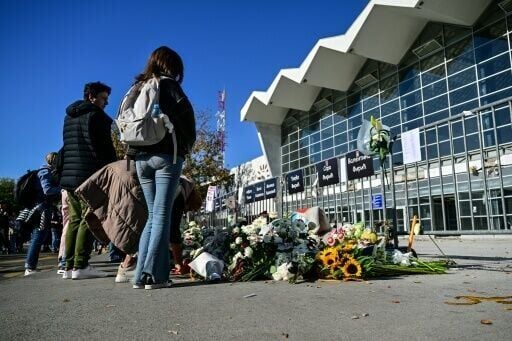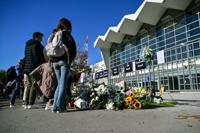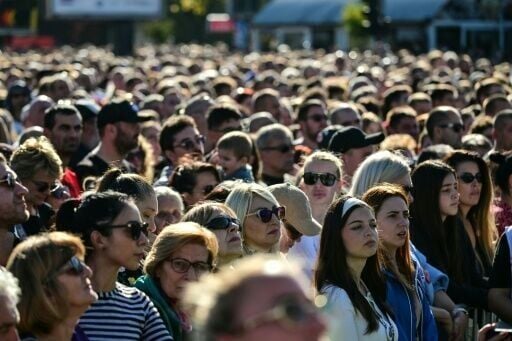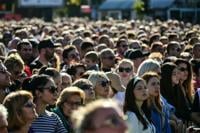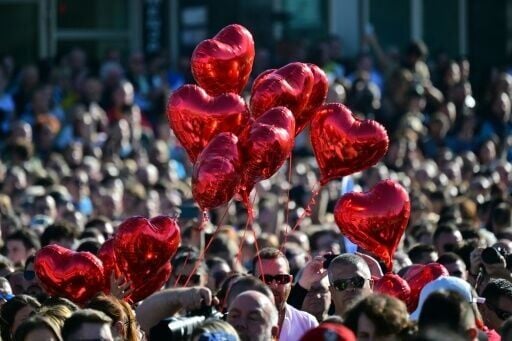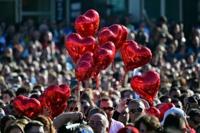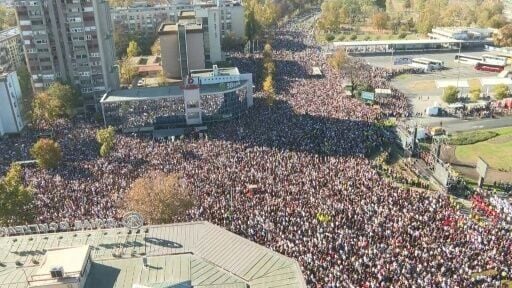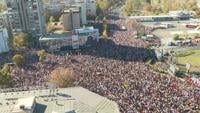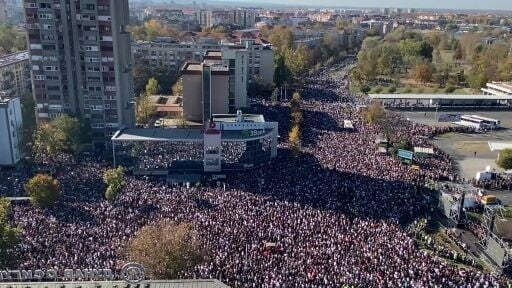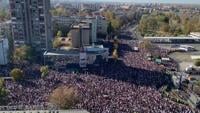Tens of thousands of Serbians marked on Saturday the first anniversary of a deadly railway station roof collapse in Novi Sad, a tragedy that shocked the Balkan nation and triggered mass protests.
Sixteen people were killed after the station's canopy collapsed on November 1, 2024, in an accident that became a symbol of Serbia's entrenched corruption, eventually leading to the collapse of the government.
On Saturday, a crowd in Novi Sad observed 16 minutes of silence, one for each of the victims, starting at 11:52 am (1052 GMT), the time when the tragedy occurred.
Police said 39,000 people rallied in the city, but according to AFP journalists at the scene and aerial images the crowd appeared to be significantly larger, at around 100,000.
People have been pouring into Serbia's second-largest city since Friday, arriving by car, bicycle, on foot and even tractor.
On Saturday, under sunny skies, they placed flowers and lit candles in front of the station.
"There is a great sadness, but I'm also glad that so many people have come to express their condolences and to show that they are unhappy with the regime and those in power," Dragan Savic, 53, told AFP.
The mother of one of the victims wailed as she arrived at the site, as people nearby by embraced and wept.
Dijana Hrka laid flowers under her son Stefan's name on a fence in front of the station. He was 27 when he died.
After speeches, a choir performance, and a walk through central Novi Sad, thousands lined the bank of the Danube river on Saturday evening to offer the day's last tribute to the victims.
The rally ended with 16 minutes of silence, during which 16 lanterns were released from boats.
On the Petrovaradin Fortress across the Danube, a giant banner was unfurled, reading: "See you tomorrow and every other day until there is justice".
- 'Murder not an accident ' -
Since the tragedy, Serbia has been gripped by regular student-led protests.
Protesters first demanded a transparent investigation, but soon expanded their calls to demands for early elections.
"This is a murder, not an accident, a murder caused by corruption, by negligence, by incompetence," said Vesna, a 55-year-old woman from Belgrade.
The protests have led to the resignation of the prime minister, the collapse of his government and formation of a new one. But nationalist President Aleksandar Vucic has remained defiantly in office.
Vucic regularly labelled demonstrators as foreign-funded coup plotters, while members of his SNS party push conspiracy theories claiming that the train station roof collapse may have been an orchestrated attack.
But in a televised public address on Friday, Vucic made a rare gesture and apologised for saying things that, he said, he now regretted.
"This applies both to students and to protesters, as well as to others with whom I disagreed. I apologise for that", Vucic said, calling for dialogue.
- 'Tragedy changing Serbia' -
The government has declared Saturday a day of national mourning while the head of the Serbian Orthodox Church (SPC) Patriarch Porfirije presided over a memorial service for the victims at the Belgrade Saint Sava church.
It was attended by several hundred people, including government ministers and Vucic. Several thousand others gathered in front of the church and lit candles for the victims.
EU's enlargement commissioner Marta Kos posted on X that the "tragedy is changing Serbia".
"It moved masses to stand for accountability, free expression and inclusive democracy. They are the same values to lead Serbia into the EU."
In September, 13 people, including former construction minister Goran Vesic were charged in a criminal case over the collapse.
A separate anti-corruption probe continues alongside an EU-backed investigation into the possible misuse of EU funds in the project.
oz-al-mp-ljv/yad



